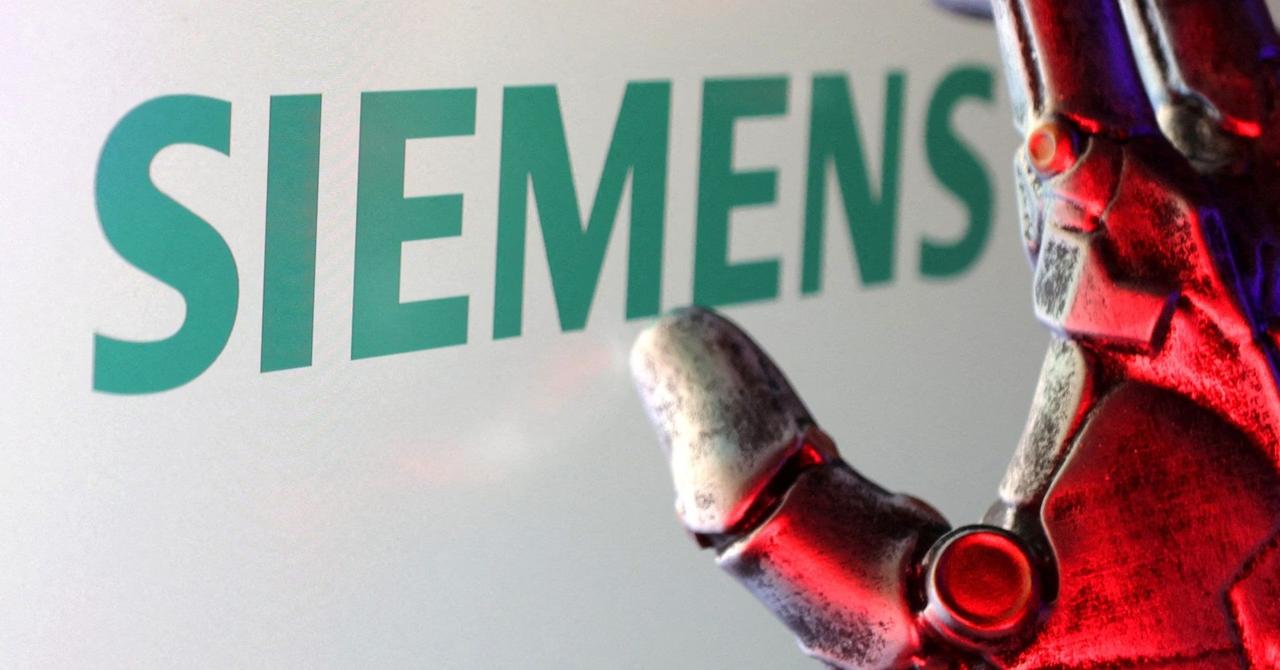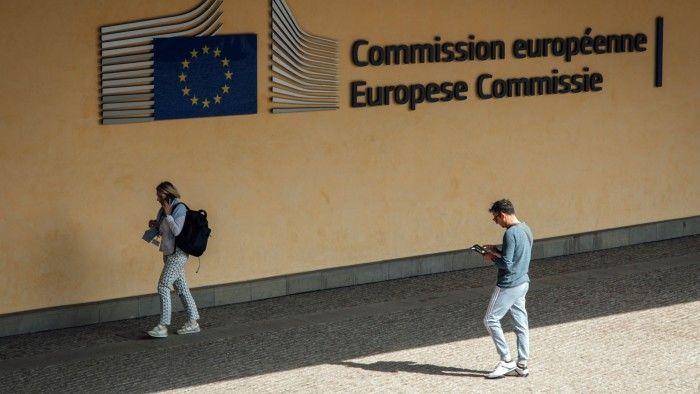Siemens and SAP CEOs Call for Revision of EU AI Regulations, Citing Innovation Concerns
2 Sources
2 Sources
[1]
Siemens and SAP call for EU to revise its AI regulations - FAZ
ZURICH, July 13 (Reuters) - Siemens (SIEGn.DE), opens new tab and SAP (SAPG.DE), opens new tab CEOs have urged the European Union to revise its artificial intelligence legislation, saying the current rules stifle innovation. SAP CEO Christian Klein and Siemens CEO Roland Busch told the Frankfurter Allgemeine Zeitung that a new regulatory framework is needed to support rather than hinder technological advancement. The EU's AI Act, which became law last year, governs the development and use of AI systems to ensure they are safe, transparent and respect fundamental rights. The law classifies AI applications into risk categories, according to which providers must meet certain security and transparency requirements. But Siemens' Busch said the Act was a key reason Europe is lagging, adding overlapping and sometimes contradictory regulations are hampering progress. He said the EU's Data Act, another law which sets out obligations on how companies use consumer and corporate data, was "toxic" for developing digital business models. While several companies including Google owner Alphabet (GOOGL.O), opens new tab and Facebook owner Meta (META.O), opens new tabrecently, opens new tab wrote to Brussels asking for the rules to be postponed, Busch declined to sign their letter, saying the proposal did not go far enough. SAP's Klein warned against simply copying the U.S. and only investing heavily in infrastructure and data centres, emphasizing that infrastructure shortages are not the main barrier in Europe. Instead, both CEOs called for reforming data rules before investing in data centres. "We are sitting on a treasure trove of data in Europe, but we are not yet able to tap into it," Busch told the newspaper. "It's not access to computing capacity that we're currently lacking, but the release of resources." Reporting by John Revill; Editing by Sandra Maler Our Standards: The Thomson Reuters Trust Principles., opens new tab
[2]
Siemens and SAP call for EU to revise its AI regulations - FAZ
ZURICH (Reuters) -Siemens and SAP CEOs have urged the European Union to revise its artificial intelligence legislation, saying the current rules stifle innovation. SAP CEO Christian Klein and Siemens CEO Roland Busch told the Frankfurter Allgemeine Zeitung that a new regulatory framework is needed to support rather than hinder technological advancement. The EU's AI Act, which became law last year, governs the development and use of AI systems to ensure they are safe, transparent and respect fundamental rights. The law classifies AI applications into risk categories, according to which providers must meet certain security and transparency requirements. But Siemens' Busch said the Act was a key reason Europe is lagging, adding overlapping and sometimes contradictory regulations are hampering progress. He said the EU's Data Act, another law which sets out obligations on how companies use consumer and corporate data, was "toxic" for developing digital business models. While several companies including Google owner Alphabet and Facebook owner Meta recently wrote to Brussels asking for the rules to be postponed, Busch declined to sign their letter, saying the proposal did not go far enough. SAP's Klein warned against simply copying the U.S. and only investing heavily in infrastructure and data centres, emphasizing that infrastructure shortages are not the main barrier in Europe. Instead, both CEOs called for reforming data rules before investing in data centres. "We are sitting on a treasure trove of data in Europe, but we are not yet able to tap into it," Busch told the newspaper. "It's not access to computing capacity that we're currently lacking, but the release of resources." (Reporting by John Revill; Editing by Sandra Maler)
Share
Share
Copy Link
The CEOs of Siemens and SAP urge the European Union to revise its AI regulations, arguing that current rules hinder innovation and technological advancement in Europe.
EU AI Regulations Under Fire from Industry Leaders
In a significant development for the European tech industry, the CEOs of two major German companies, Siemens and SAP, have called for a revision of the European Union's artificial intelligence regulations. Roland Busch of Siemens and Christian Klein of SAP expressed their concerns to the Frankfurter Allgemeine Zeitung, arguing that the current regulatory framework is hindering rather than supporting technological advancement
1
2
.The EU's AI Act and Its Impact
The EU's AI Act, which became law last year, aims to govern the development and use of AI systems to ensure safety, transparency, and respect for fundamental rights. The legislation classifies AI applications into risk categories, with providers required to meet specific security and transparency requirements based on these classifications
1
.However, Siemens' CEO Roland Busch contends that this Act is a key reason for Europe's lag in AI development. He pointed out that overlapping and sometimes contradictory regulations are hampering progress in the field
1
.Data Act Concerns
Busch didn't stop at criticizing the AI Act. He also took aim at the EU's Data Act, another piece of legislation that outlines obligations for companies regarding the use of consumer and corporate data. Busch went as far as to describe this act as "toxic" for the development of digital business models
1
2
.Diverging from Other Tech Giants
Interestingly, while several major tech companies, including Google's parent company Alphabet and Facebook's owner Meta, recently appealed to Brussels for a postponement of these rules, Busch declined to sign their letter. He argued that their proposal didn't go far enough in addressing the issues at hand
1
.Focus on Data Rules Over Infrastructure
SAP's CEO Christian Klein cautioned against simply emulating the U.S. approach of heavy investment in infrastructure and data centers. Both Klein and Busch emphasized that the primary barrier in Europe is not a lack of infrastructure, but rather the need for reformed data rules
1
2
.
Source: Market Screener
Related Stories
Europe's Untapped Data Potential
Busch highlighted the paradox of Europe's current situation, stating, "We are sitting on a treasure trove of data in Europe, but we are not yet able to tap into it." He clarified that the issue isn't a lack of computing capacity, but rather the need for "the release of resources"
1
2
.
Source: Reuters
Call for a New Regulatory Framework
Both CEOs stressed the need for a new regulatory framework that would support rather than hinder technological advancement. They argue that reforming data rules should take precedence over investments in data centers
1
2
.This call for regulatory revision from industry leaders underscores the ongoing debate about balancing innovation with regulation in the rapidly evolving field of artificial intelligence. As Europe strives to remain competitive in the global AI race, the concerns raised by Siemens and SAP are likely to fuel further discussions on the continent's approach to AI regulation and data management.
References
Summarized by
Navi
[2]
Related Stories
Recent Highlights
1
ByteDance's Seedance 2.0 AI video generator triggers copyright infringement battle with Hollywood
Policy and Regulation

2
Demis Hassabis predicts AGI in 5-8 years, sees new golden era transforming medicine and science
Technology

3
Nvidia and Meta forge massive chip deal as computing power demands reshape AI infrastructure
Technology








